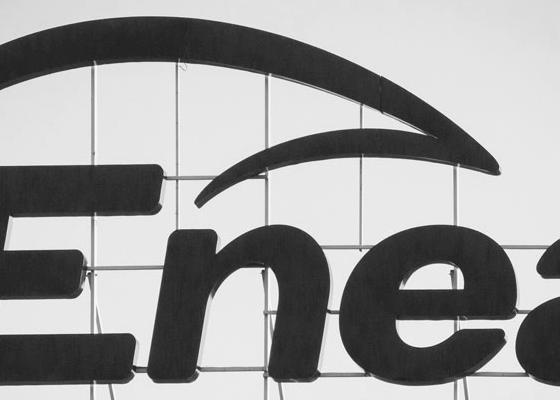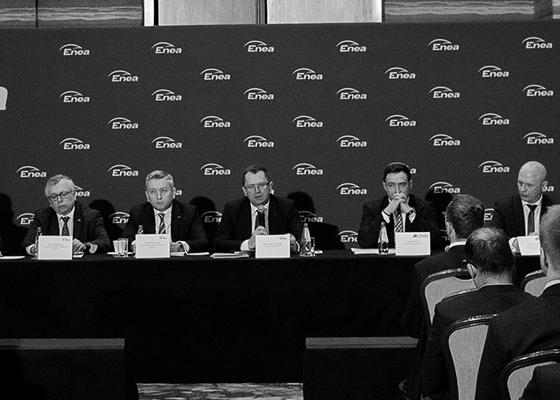Pursuant to the provisions of the Supervisory Board Bylaws, the following standing committees operate within the Supervisory Board:
- Audit Committee
- Nominations and Remuneration Committee
The committee consists of at least three members appointed by the Supervisory Board from among its members for a period corresponding to the term of office of the Board. The members of the committee shall elect Chair of the committee from among themselves. Chair of the committee manages the work of the committee and supervises the work of the committee, in particular the organisation and course of the committee’s meetings.
Audit Committee
As at the day of publication of this Report, i.e. 21 March 2019, the Audit Committee operates in the following composition:
| Audit Committee | |
|---|---|
| Name | Position |
| Ireneusz Kulka 1 | Chair |
| Roman Stryjski 2, 4 | Member |
| Piotr Mirkowski 2, 4 | Member |
| Sławomir Brzeziński 4 | Member |
| Wojciech Klimowicz 3, 4 | Member |
- Independent Member within the meaning of Article 129 Item 1 point 3 of the Act of 11 May 2017 on certified auditors, audit companies and public supervision.
- Independent Member within the meaning of Article 129 Item 1 point 3 of the Act of 11 May 2017 on certified auditors, audit companies and public supervision and within the meaning of corporate governance principles included in the Code of Best Practice for WSE Listed Companies 2016.
- Member with knowledge and skills in accounting or auditing financial statements.
- Member with knowledge and skills in the industry in which the issuer operates.
Operation of the Audit Committee
A detailed description of the powers of the Audit Committee is included in the Act of 11 May 2017 on certified auditors, audit companies and public supervision (Journal of Laws item 1089) and the ENEA S.A. Supervisory Board Bylaws.
Chair of the Audit Committee and most of its members should meet the independence criteria within the meaning of Article 129(3) of the Act of 11 May 2017 on certified auditors, audit companies and public supervision; moreover, at least one member of the Audit Committee should have the knowledge and skills in the scope of accountancy or auditing financial statements. The Audit Committee members have the knowledge and skills in the field of the industry in which the Issuer operates. This condition is deemed met, if at least one member of the Audit Committee has the knowledge and skills in the field of this industry or if individual members in specific scopes have the knowledge and skills in the field of this industry.
The responsibilities of the Audit Committee include advising the Supervisory Board on the internal policy and budget procedures adopted by the Company and their control, and advising on the Company’s contacts with a certified auditor, including:
1. monitoring of:
a. the Company’s financial reporting process,
b. the effectiveness of internal audit systems and risk management systems and the internal audit, including in the scope of financial reporting,
c. performing the financial revision operations, including, without limitation, conducting the audit by an audit company, taking into consideration any conclusions and findings of the Audit Supervision Commission resulting from the control conducted in the audit company,
2. controlling and monitoring of independence of the certified auditor and the audit company, also in the case where any services other than audit are provided by the audit company for the Company.
3. informing the Supervisory Board of the audit results and explaining how the audit contributed to the reliability of financial reporting in the Company and what was the Audit Committee’s role in the audit process.
4. performing the assessment of the certified auditor’s independence and granting a consent for the provision by such auditor of permitted services other than audit services in the Company.
5. developing the policy of selecting the audit company to conduct the audit.
6. developing the policy of provision of permitted services other than auditing by the audit company conducting such audit, by the entities related to such audit company, and by a member of the audit company’s network.
7. determining the procedures for selecting audit company by a public interest unit.
8. presenting to the Supervisory Board the recommendation on the appointment of certified auditors or audit companies, pursuant to the policies referred to in items 5 and 6.
9. making the recommendations aimed to ensure the reliability of the financial reporting process in the Company.
10. monitoring the reliability of financial information presented by the Company, including, without limitation, by way of the review of adequacy and consequences of applying the accountancy methods adopted by the Company and its group (including the criteria for consolidation of financial statements of companies in the group).
11. providing an opinion on and submitting to the Supervisory Board for approval the annual internal audit plan.
12. providing an opinion on and submitting to the Supervisory Board for approval the annual budget of internal audit subunit.
13. providing an opinion on and submitting to the Supervisory Board for approval the changes to the scope of operations of the internal audit unit.
14. discussing any problems or reservations which may result from the financial statements auditing.
15. discussing with the Company’s certified auditors, before commencement of each audit of the annual financial statements, the character and scope of the audit and monitoring coordination of works among the Company’s certified auditors.
16. reviewing, at least once a year, the internal audit and risk management systems in terms of ensuring that key risks (including those related to compliance with applicable laws and regulations) are correctly identified, managed, and disclosed.
17. ensuring the effectiveness of the internal audit function by way of expressing an opinion on selecting, appointing and recalling the head of the internal audit department, as well as monitoring the Company’s Management Board reaction to its findings and recommendations.
18. expressing an opinion on termination of the remuneration conditions (salary reduction) to the Control and Audit Bureau Manager.
19. analysing the reports of the Company’s internal auditors and key comments of other internal analysts and the Management Board’s response to such comments, including the audit of the degree of internal auditors’ independence.
20. controlling the character and scope of extra-auditing services, including, without limitation, the control on the basis of disclosure by the external auditor of the sum total of all fees paid by the Company and its group to the audit company and its network, in terms of preventing any significant conflict of interest in this respect;
21. conducting the review of effectiveness of the external control process and monitoring the Company’s Management Board reaction to the recommendations given by external auditors in the letter to the Management Board.
22. examination of the issues being the reasons for resignation from the external auditor’s services and giving instructions on the required operations.
23. cooperation with the Company’s organisational subunits in charge for the audit and control and periodical assessment of their work.
24. review of the Company’s managerial accountancy system.
Activity of the Audit Committee in 2018
| Audit Committee |
|---|
| The Audit Committee held 8 meetings and adopted 8 Resolutions, regarding without limitation the following: |
|
Nominations and Remuneration Committee
Operation of the Nominations and Remuneration Committee
The Nominations and Remuneration Committee should be composed of at least one independent member in the meaning of the European Commission’s Recommendation, but in the case of nomination to the Supervisory Board of more than one person fulfilling the above independence criteria, the committee should be composed of possibly the largest number of independent members.
The responsibilities of the Nominations and Remuneration Committee is to promote the achievement of the Company’s strategic objectives by presenting opinions and motions to the Board regarding the structure of employment and the remuneration paid to the Company’s personnel, particularly management personnel. The description of the Nominations and Remuneration Committee’s responsibilities was specified in ENEA S.A. Supervisory Board Bylaws.
In particular, the responsibilities of the Committee include:
- analysing the Management Board’s policy concerning the nomination, election and appointment of senior managerial personnel,
- presenting proposals to the Supervisory Board concerning the remuneration and forms of employment of members of the Management Board, taking into account their performance,
- presenting opinions to the Supervisory Board on the justification for awarding performance-based remuneration and on incentives based on realisation of tasks and goals of the Company and proposals in that respect,
- evaluation of the human resources management system in the Company,
- periodical assessment of the skills, knowledge and experience of individual members of the Management Board and management personnel, and presenting the results of the assessment to the Supervisory Board.
As at the day of publication of this Report, i.e. 21 March 2019, the Nominations and Remuneration Committee operate in the following compositions:
| Nominations and Remuneration Committee | |
|---|---|
| Name | Position |
| Paweł Jabłoński | Chair |
| Stanisław Hebda | Member |
| Tadeusz Mikłosz | Member |
| Piotr Mirkowski 1 | Member |
| Paweł Koroblowski | Member |
- Independent Member within the meaning of Article 129 Section III. 1 point 3 of the Act of 11 May 2017 on certified auditors, audit companies and public supervision and within the meaning of corporate governance principles included in the Code of Best Practice for WSE Listed Companies 2016.
Activity of Nominations and Remuneration Committee in 2018
| Nominations and Remuneration Committee |
|---|
| The Nominations and Remuneration Committee held 7 meetings and adopted 13 Resolutions. The subject matter of the meetings of the Committee was, inter alia, development of recommendations for the Supervisory Board, regarding: |
|




